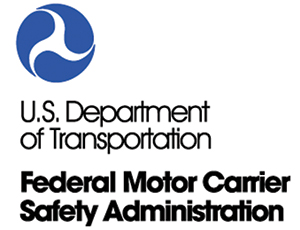Senior Reporter
FMCSA Outlines Plans for Public Meeting on CSA Study
In preparation for a Sept. 8 public meeting, Federal Motor Carrier Safety Administration officials said they have outlined a number of “high-level proposals” to address a slate of recommendations made in a National Academy of Sciences study of the agency’s controversial Compliance, Safety, Accountability program.
In an Aug. 25 announcement, FMCSA said it accepts the academy expert academic panel’s recommendations, “but is still considering and evaluating actions to address the recommendations.”

The agency also unabashedly accepted the panel’s pat-on-the-back that said the current CSA Safety Measurement System is “structured in a reasonable way and its method of identifying motor carriers for alert status is defensible.”
“NAS agreed that FMCSA’s overall approach, based on crash prevention rather than prediction, is sound,” said the agency announcement.
FMCSA has 120 days to provide Congress and the Department of Transportation’s Inspector General a plan of action in response to the study recommendations that were made public June 27.
The 132-page study was conducted over the past 15 months by a 12-member elite panel of academics, several of whom specialize in statistics and transportation safety policy. It was funded by the FMCSA and mandated by the FAST Act of 2015.
The meeting next month will feature presentations from the study researchers and a limited time for public comments. It will be from 1-4 p.m. EDT at the agency’s National Training Center in Arlington, Va.
The study provided FMCSA with several recommendations that included development over a two-year period of an “item response theory” approach to assessing carriers — that is, a more detailed data-oriented model that digs deeper and measures the performance of individual trucks and buses, not just at the motor carrier level.
“To address this recommendation, FMCSA is securing additional expertise and resources to develop and test the proposed IRT statistical model,” FMCSA said. “The testing of an IRT model is consistent with FMCSA’s continuous improvement process of modifying and testing changes to the safety measurement system by focusing on data quality, data collection and transparency.”
The agency also is working with the academy to establish a standing committee to oversee and provide advice relating to its work addressing the recommendations, the announcement said.
The study also acknowledged that truckers and other stakeholders have criticized the Safety Measurement System primarily for making use of highly variable assessments, not accounting for crashes where the motor carrier is not at fault, including carriers that have very different tasks in the same peer groups, using measures that are sensitive to effects from one or more individual states, and not predictive of a carrier’s future crash frequency or efforts to improve its safety performance over time.
In response to some of those criticisms, FMCSA said it will continue to collaborate with states and other agencies to improve the quality of the Motor Carrier Management Information System — a source for FMCSA inspection, crash, compliance review, safety audit and registration data.
The agency agrees that more vehicle miles traveled data from motor carriers would reduce the need for FMCSA to use substitute values and would improve the quality of Safety Measurement System data. However, FMCSA said it is concerned that access to monthly and by-state vehicle miles traveled is not currently feasible.
Other ideas discussed in the announcement:
- The agency said it would conduct a study on how to broaden data collection to obtain such detailed information as driver turnover rate, type of cargo, method and level of driver compensation and better information on exposure to crashes.
- FMCSA agreed that a methodology should be developed to ensure that carriers get some sort of credit for “clean” roadside inspections.
- The agency said it would seek data from motor carriers, insurance companies and shippers regarding the impacts of the public display of Safety Measurement System percentiles and alerts on businesses.
- FMCSA concurred with the idea that it should structure a user-friendly version of the Motor Carrier Management Information System data file used as input to the Safety Measurement System without any personally identifiable information to facilitate its use by external parties — such as researchers — and by carriers.

